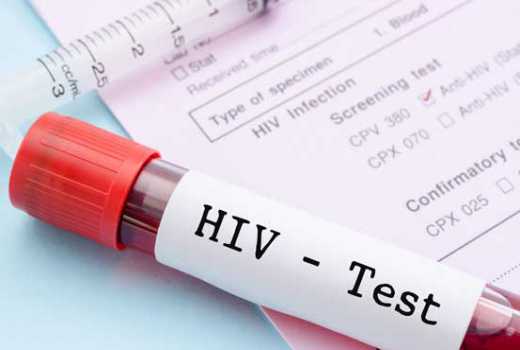NAIROBI, KENYA: "The cure for HIV and AIDS may not be found this year or next year but there is hope as research shows HIV remission is possible," says Caroline Tiemessen, National Institute for Communicable Diseases, University of Witwatersrand, South Africa
Her sentiments have been echoed by Chinese Medical researcher Prof. Tian Shangxun who concurred that “actually HIV remission or HIV/AIDS functional cure from herbal medication has been a reality for more than 20 years now.’’
He singled out TIB Immune Booster as one of the most effective herbal drugs. Speaking in Nairobi, at his Africa regional TIB Center in Hurlingham medicare Plaza, Professor Tian pointed out that patients can use the herbal medicine in combination with other conventional antiretroviral drugs.

The Chinese don urged governments and other agencies involved in the fight against the scourge to adopt a multipronged approach in the war against the killer disease through use of both
conventional and Chinese herbal medicine.
In a message to mark the World AIDS Day 2017, the researcher says as the world races towards the fulfillment of eliminating the disease by 2030, last year’s theme of my health, my right, should be followed to the letter through embracing both conventional and herbal medicines.
The Professor says that a combination of herbal and conventional medicine has helped China significantly reduce spread of the HIV virus on that country.
“This combination of herbal and conventional had helped China significantly reduce spread of the virus and so it is the time for developing nations, especially in Africa to embrace this strategy to help in the reduction of the disease in the continent, “says Prof.Tian Shengxun.
He says discovery of the drug was part of the contribution by the Chinese University towards global efforts to find the elusive anti-retroviral therapy, and ensuring access to lifesaving medicine to end the AIDS epidemic by 2030 as set out by the United Nations.
Global statistics by various UN agencies indicate that Kenya has the joint fourth-largest HIV epidemic in the world alongside Mozambique and Uganda in terms of the number of people living with HIV, which was 1.6 million people in 2016 according to UNAID report.
The government and other agencies involved in the fight against the scourge have been urged to adopt this multipronged approach in the war against the killer disease.
Studies conducted on TIB by Dr. Josef Schneider at Freiburg University (Germany) and a similar study by Dr Peter Nara of Biological Mimetics Inc in Maryland State (USA) , particularly medical scientist in Tokyo Japan reveal the TIB drug can 100 percent inhibit the HIV replication as the Fusion Inhibitor.
“Findings from our research shows that those patients who have used TIB as alternative HIV/AIDS therapy can survive for more than 15 or 20 years,‘’ reconfirmed Prof. Tian.
TIB is manufactured through modern technology as proper compounds extracted from more than 30 different pure Chinese herbs. For sure TIB therapy has multiple functions and can handle most of Opportunistic Infections (OPIs) linked to lower immunity or HIV/AIDS.
TIB products have been clinically used in Africa for almost 30 years and its clinical efficacy is very promising. Most patients respond very fast and recover soon after TIB therapy. For instance, combined with conventional standard Anti-TB drugs, majority of TB patients with HIV (sputum test) are turned to negative within 3 month treatment.
Stay informed. Subscribe to our newsletter
There are four different sugar coated TIB tablets, with active ingredients are extracted from 100 percent pure Chinese herbs.
Unlike conventional ARVs, TIB Products are not only Enzyme inhibitor like RT, PI and also specially fusion inhibitor killing HIV virus in the beginning of infection. Which TIB blocks fusion taking place between HIV and CD4 cell.
HIV virus will rapture (die) within 72 hours if HIV cannot access CD4 cells. Therefore TIB products offer true solution to HIV/AIDS and even patients can get real functional cure which the whole world is looking for.
Like many African countries, Kenya has scaled up its war against HIV/Aids by setting aside millions of shillings in its budget for purchase of anti-retroviral drugs. Kenya aims to become the third country in Africa to control HIV epidemic after Botswana and Namibia.
Long-term options, including providing HIV treatment as part of national health insurance, setting up HIV and health funds that will leverage government financing and fostering strategic private public partnerships are urgently required. This call for investments and actions could well result in averting 28 million new infections and 21 million Aids related deaths by 2030.
 The Standard Group Plc is a
multi-media organization with investments in media platforms spanning newspaper
print operations, television, radio broadcasting, digital and online services. The
Standard Group is recognized as a leading multi-media house in Kenya with a key
influence in matters of national and international interest.
The Standard Group Plc is a
multi-media organization with investments in media platforms spanning newspaper
print operations, television, radio broadcasting, digital and online services. The
Standard Group is recognized as a leading multi-media house in Kenya with a key
influence in matters of national and international interest.
 The Standard Group Plc is a
multi-media organization with investments in media platforms spanning newspaper
print operations, television, radio broadcasting, digital and online services. The
Standard Group is recognized as a leading multi-media house in Kenya with a key
influence in matters of national and international interest.
The Standard Group Plc is a
multi-media organization with investments in media platforms spanning newspaper
print operations, television, radio broadcasting, digital and online services. The
Standard Group is recognized as a leading multi-media house in Kenya with a key
influence in matters of national and international interest.






